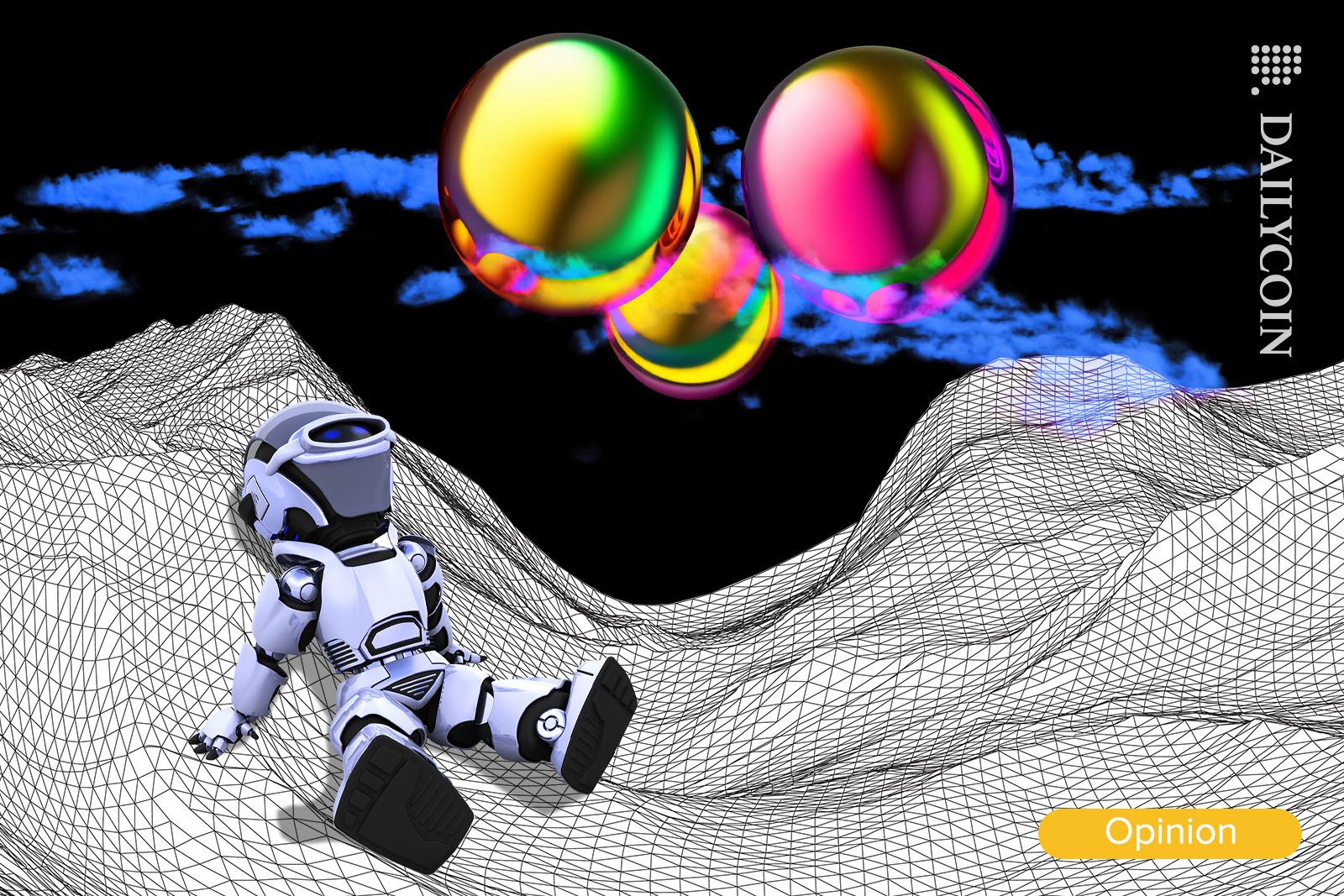
In an era where technology is evolving at an unprecedented pace, the convergence of blockchain, artificial intelligence (AI), and human-centric principles is shaping a transformative future.
The Rise of Blockchain Technology
Blockchain technology has experienced remarkable growth and adoption globally, indicating its potential to revolutionize industries. According to Fortune Business Insights, the global blockchain market is expected to hit USD 469.49 billion in 2030, growing at a 59.9% CAGR from 2023-2030., growing at a CAGR of 67.3% from 2020 to 2025.
Industries such as finance, supply chain, healthcare, and real estate have already embraced blockchain to improve efficiency and security. Deloitte’s Global Blockchain Survey 2021 revealed that 81% of surveyed executives believe blockchain technology provides greater security than conventional systems, and 73% view blockchain as a critical strategic priority for their organizations.
Artificial Intelligence: The Game Changer
AI’s impact on various industries has been nothing short of revolutionary. According to a study by McKinsey & Company, AI could potentially deliver an additional global economic output of around USD 13 trillion by 2030.
Sponsored
The healthcare sector, for instance, has benefited significantly from AI applications. A study published in Nature Medicine demonstrated that an AI system outperformed human dermatologists in diagnosing skin cancer accurately. Moreover, AI-powered chatbots and virtual assistants have transformed customer service across sectors, improving response times and enhancing customer experiences.
Human-Centric Principles: The Core of Innovation
The importance of human-centric principles in technological advancements cannot be understated. A report by the World Economic Forum highlights that as AI and automation continue to disrupt industries, it is crucial to proactively address the ethical and social implications.
Sponsored
The report emphasizes the need for transparency, fairness, and accountability in AI systems to ensure they do not perpetuate biases or discriminate against certain groups. Implementing ethical frameworks that prioritize human well-being and privacy is essential to building public trust in these transformative technologies.
The Convergence: Blockchain, AI, and Humanity
The convergence of blockchain, AI, and human-centric principles is already manifesting in groundbreaking innovations. One notable example is the Worldcoin project, which aims to create a more equitable distribution of wealth worldwide.
By leveraging the Orb, an AI-powered device that verifies individual uniqueness without storing personal data, Worldcoin provides an inclusive approach to cryptocurrency ownership. This convergence of technologies and principles fosters financial inclusivity and privacy protection. However, while the potential benefits of convergence are vast, there are also critical risks and challenges to consider.
The Worldcoin project, which requires users to provide their iris scans in exchange for a digital ID and potentially free cryptocurrency, has raised significant privacy concerns. The French watchdog CNIL has questioned the legality of this biometric data collection, highlighting the potential risks associated with storing such sensitive personal information.
The deployment of AI in various sectors, including healthcare, demands heightened attention to data privacy and ethical concerns. Recent studies and developments in AI applications demonstrate their potential to transform healthcare. For instance, AI systems have showcased their ability to outperform human dermatologists in diagnosing skin cancer accurately, as published in Nature Medicine. However, protecting patient data from unauthorized access and ensuring ethical practices in AI development remain pivotal to maintaining public trust and confidence in these technologies.
Moreover, as AI algorithms become more pervasive, there is a growing concern about potential biases and discrimination perpetuated by these systems. Recent data highlights the urgency of addressing these ethical implications proactively. Fairness, transparency, and accountability must be at AI systems’ core to prevent exacerbating societal inequalities.
For example, the legality of Worldcoin's data collection methods has been called into question by various regulatory bodies, including Britain's data regulator and the French watchdog CNIL. The project is currently under investigation by the Bavarian state authority in Germany, indicating potential legal issues that could arise from the collection and storage of biometric data.
Future Outlook: Shaping a Transformative Future
Looking ahead, the convergence of blockchain, AI, and human-centric principles continues to garner attention and shows immense promise in shaping the future across industries and societies. Recent credible reports emphasize the vast potential applications and their profound impact on various sectors.
In healthcare, the convergence holds the potential to revolutionize personalized medicine. AI-driven analysis of genomic data, lifestyle factors, and environmental influences can lead to tailored patient treatment plans, enhancing healthcare outcomes. According to a recent research report by Markets and Markets, AI in the healthcare market is projected to grow from USD14.6 billion in 2023 to USD 102.7 billion by 2028, expected to grow at CAGR 47.6%, indicating the significant role AI is expected to play in transforming the healthcare industry.
In finance, blockchain’s decentralized nature combined with AI’s predictive capabilities could pave the way for more inclusive financial systems that provide services to the unbanked and underbanked populations. A study by the World Bank estimated that around 1.4 billion adults globally remained unbanked in 2017, highlighting the potential for innovative solutions to bridge this gap.
Conclusion
The transformative potential of the convergence of blockchain, AI, and human-centric principles is undeniable. This trifecta of innovation, driven by the relentless efforts of pioneers in the field, promises to revolutionize industries and improve lives. As these technologies evolve, fostering a culture of informed decision-making and cautious optimism is crucial in advocating for responsible investment practices. This approach helps mitigate the risks associated with speculative investments and instead focuses on supporting projects with long-term societal value.
Moreover, in developing effective decentralized identity solutions, striking the right balance between innovation and user data protection is key. This balance fosters trust and encourages the widespread adoption of these transformative technologies. By recognizing the contributions of innovators, promoting responsible investment, and prioritizing privacy and security, we can shape a future that fully harnesses this technological convergence while protecting the interests and well-being of individuals and communities globally.
Therefore, the convergence of blockchain, AI, and human-centric principles is a powerful force shaping our future. As we embrace this convergence, ethical considerations and privacy issues must be addressed to ensure these technologies serve humanity’s greater good. By doing so, we can unlock the full potential of this trifecta of innovation, creating a more equitable and sustainable world for all.

